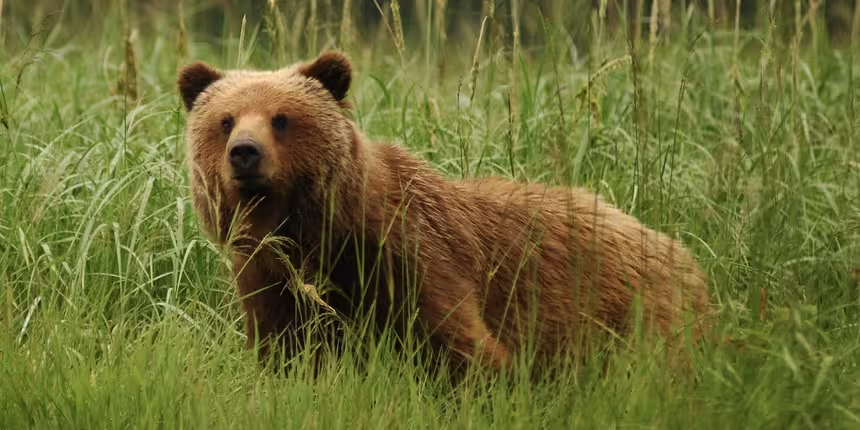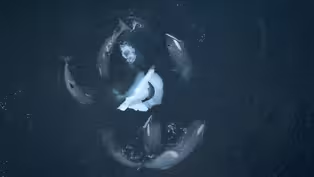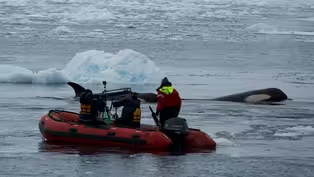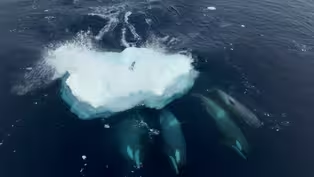
Pack-Ice Killer Whale Sounds -- on Film
Clip: Season 43 Episode 8 | 2m 51sVideo has Closed Captions
This is the first time pack-ice killer whale vocalizations have been recorded.
Pack-ice killer whales are highly social creatures, communicating through various vocalizations like pulsed calls and whistles. For the first time, researchers have recorded these vocalizations and made surprising discoveries about their behavior.
Problems playing video? | Closed Captioning Feedback
Problems playing video? | Closed Captioning Feedback
Major support for NATURE is provided by The Arnhold Family in memory of Henry and Clarisse Arnhold, Sue and Edgar Wachenheim III, The Fairweather Foundation, Charles Rosenblum, Kathy Chiao and...

Pack-Ice Killer Whale Sounds -- on Film
Clip: Season 43 Episode 8 | 2m 51sVideo has Closed Captions
Pack-ice killer whales are highly social creatures, communicating through various vocalizations like pulsed calls and whistles. For the first time, researchers have recorded these vocalizations and made surprising discoveries about their behavior.
Problems playing video? | Closed Captioning Feedback
How to Watch Nature
Nature is available to stream on pbs.org and the free PBS App, available on iPhone, Apple TV, Android TV, Android smartphones, Amazon Fire TV, Amazon Fire Tablet, Roku, Samsung Smart TV, and Vizio.
Buy Now

Explore More Ways to Watch
Bring the beauty and wonders of wildlife and natural history into your home with classic NATURE episodes.Providing Support for PBS.org
Learn Moreabout PBS online sponsorshipSocializing is an essential element in the lives of pack-ice killer whales.
- These animals are not just hunters.
They're complex social animals with tight family units and even tighter family bonds.
- Lead listens to the whales as they interact with each other.
- I can hear them.
I can hear them.
So many pulse calls and whistles.
It's so ethereal.
It's so otherworldly.
The pulse calls are predominantly used when the animals are socializing and whistles typically can be used where the family group are establishing and renewing their bonds between one another.
Particularly, for example, between her mom and her offspring.
This is the first time pack- ice killer whales have ever been, ever been recorded.
- Lee continues to listen to the group for several hours as they look for a suitable meal.
- Typically, kilowatts are quiet when they're searching for prey because sound travels incredibly well in water.
And so they could alert their prey to their presence.
What's interesting here, because their prey is out on the ice, it seems these pack ice killer whales are okay with vocalizing.
And that's never been known before.
This is completely new.
Literally, what we're hearing this second is new.
We're watching, searching for prey happening, and the animals are being very vocal.
Those seals have no idea.
It's amazing.
- Somehow the killer whales understand that seals on the ice cannot hear them vocalizing underwater.
So they can communicate freely, knowing it won't scare their prey away.
Killer Whales Teach Young To Hunt
Video has Closed Captions
Clip: S43 Ep8 | 2m 42s | The team films something not seen before: a teaching session between adults and their young. (2m 42s)
Preview of Expedition Killer Whale
Video has Closed Captions
Preview: S43 Ep8 | 30s | A team of scientists and filmmakers explore the Antarctic waters to learn more about killer whales. (30s)
What Is Wave Washing: How Killer Whales Hunt Seals
Video has Closed Captions
Preview: S43 Ep8 | 4m 14s | Killer whales rarely risk hunting leopard seals - Antarctica's second-top predator. (4m 14s)
Providing Support for PBS.org
Learn Moreabout PBS online sponsorship
- Science and Nature

Explore scientific discoveries on television's most acclaimed science documentary series.













Support for PBS provided by:
Major support for NATURE is provided by The Arnhold Family in memory of Henry and Clarisse Arnhold, Sue and Edgar Wachenheim III, The Fairweather Foundation, Charles Rosenblum, Kathy Chiao and...



